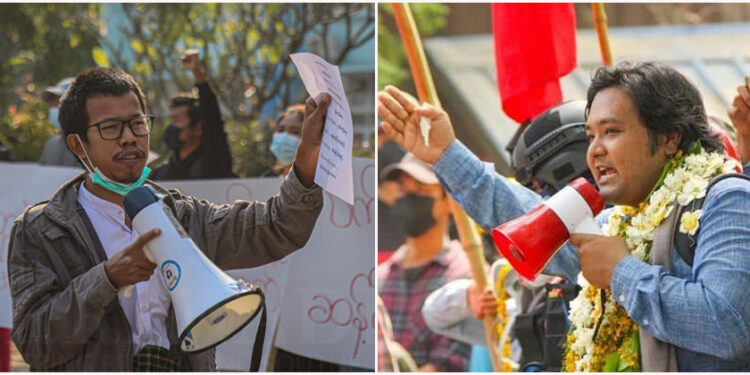At a first glance, the differences between them are noticeable.
While one is bespectacled and slim, looking more like a school teacher, the other weighs 260 lbs. and has the air of a jolly guy.
When it comes to their anti-regime activism, however, there are no differences at all between them. The vision of both men, like others in the country today, is crystal clear: to root out military dictatorship in Myanmar.
Meet Ko Tayzar San of Mandalay and Ko Wai Moe Naing from Monywa. The two have been the most prominent faces of the pro-democracy movement in Myanmar’s upcountry regions Mandalay and Sagaing. They have played leading roles in anti-regime protests since February.
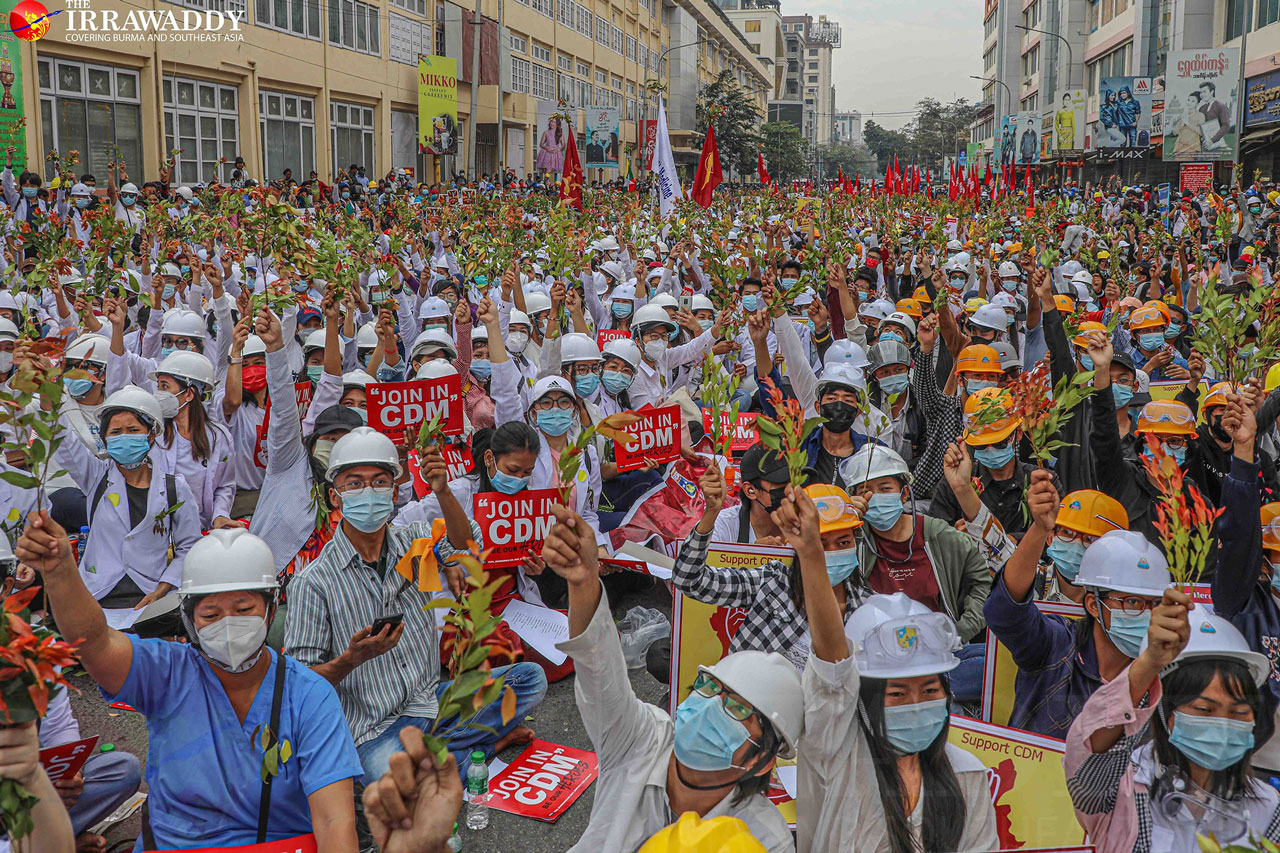
It was Feb. 4 and the whole country was still in shock after a pre-dawn military coup three days before. Some 20 young protesters suddenly appeared in front of a medical university in downtown Mandalay, Myanmar’s second biggest city, to stage a demonstration against the regime. Shouting anti-regime slogans through a megaphone in his hand, at the forefront of the column, was Ko Tayzar San. The protest turned out to be the first ever anti-regime rally in the country, breaking out at a time when others in the country were still testing the waters about taking to the streets.
One day later, large protests took placed in Yangon’s Hledan. Since then, with anti-regime demonstrations in other parts of the country, Myanmar has become a nation of defiance against the junta, prompting a series of deadly crackdowns on the protests.
Recalling that first protest on Feb. 4 in Mandalay, the 32-year-old simply said those involved couldn’t accept the coup. He was hesitant to say that their first appearance had ignited the nationwide protests.
“I would say, were it not for popular support across the country, our movement would not be still strong today. We really thank people,” he said.
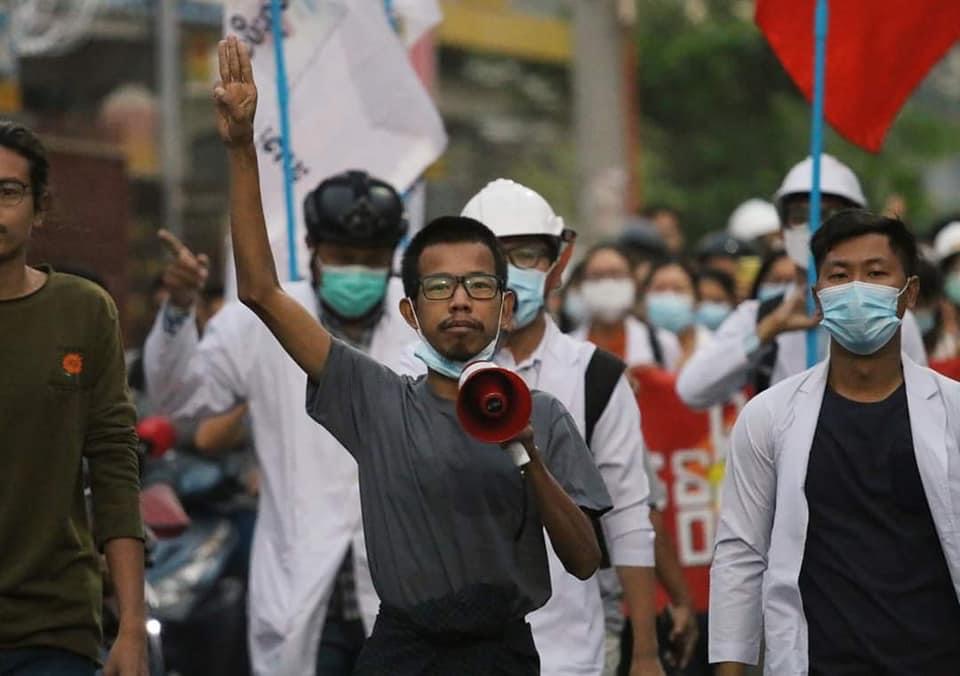
Trained as a medical doctor but working as a librarian and an NGO worker with a focus on public health, political education and youth capacity building, Ko Tayzar San believed the return of the military rule in Myanmar could backslide the country’s democratic transition and political development.
“For the time being, the state itself is the most critical patient as the coup has destroyed the present and future for the country’s 57 million people,” he said.
“That’s why everyone—from doctors to teachers to civil servants to students—take part by all means where they can, by staging protests on the streets to joining the civil disobedience movement,” he said.
When he learned about the coup on the morning of Feb. 1, Ko Wai Moe Naing and his friends in Monywa—a business hub on the eastern bank of the Chindwin River and the largest city in Sagaing Region—had a brainstorming session on how they should respond.
“I really didn’t expect it,” said the 26-year-old Muslim man, referring to the takeover.
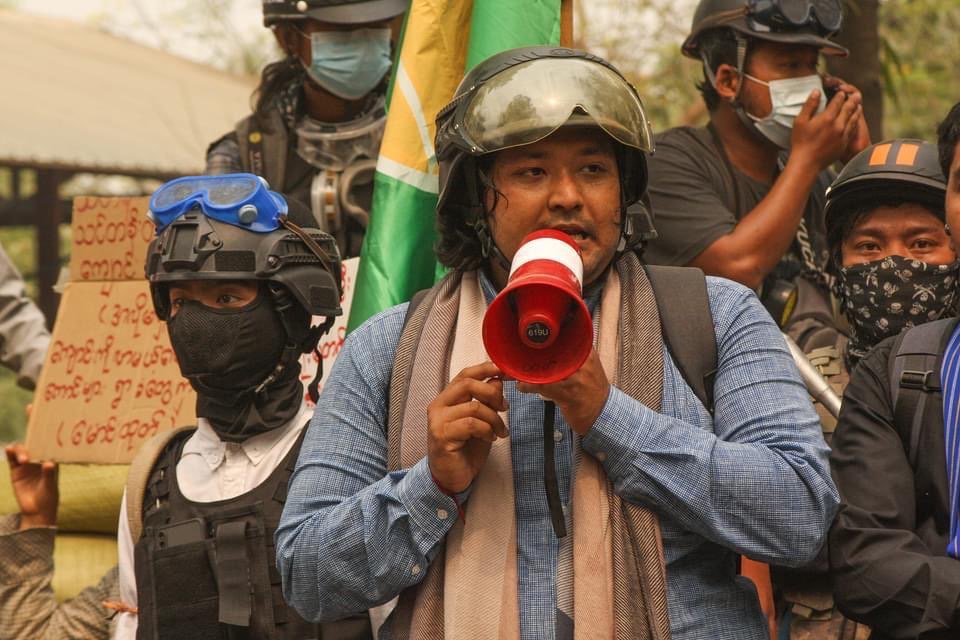
Then, they came up with an idea of banging pots and pans in opposition of the regime. At that time they simply had no idea that their brainchild would become another way of popular protest nationwide. Today, it’s a ritual for the people of Myanmar to beat their cooking utensils for 15 minutes at night before shouting anti-regime slogans.
“We started it on the night of Feb. 2 by live-streaming it from our Sagaing Regional Youth Committee Facebook page. Unexpectedly, it has still been popular among people,” said Ko Wai Moe Naing, who is the committee’s youth leader.
However, he was better known for his active role in protests on the streets in Monywa that began Feb. 6.
The town on the eastern bank of Chindwin River has been known of its unity against the regime. Thousands of protesters took to the streets every day. At the forefront of the column was Wai Moe Naing. When he wasn’t shouting anti-regime slogans via a megaphone, he took to the stage, explaining to the gathering of people why the anti-regime movement was important. Not surprisingly, he was charged with incitement by the regime.
A resident in Monywa said Ko Wai Moe Naing has earned popular support in the city for his activism, his stand and his non-affiliation with political parties.
“Many people like him for his non-extreme speeches, his firm stand with CRPH (the shadow government) and no party affiliation. They no longer care whether he is a Muslim or not,” said the resident, who requested anonymity for his safety.
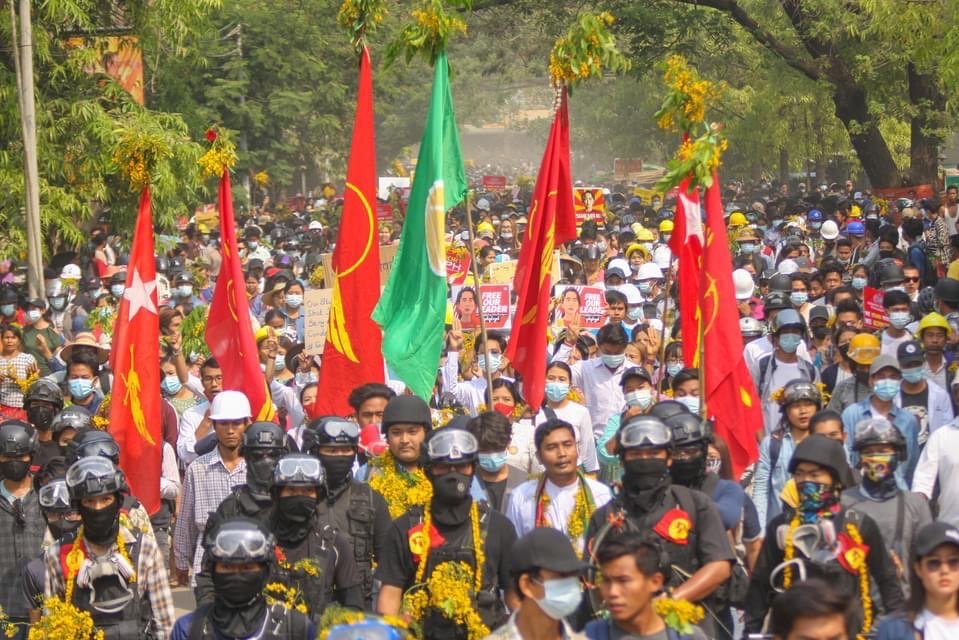
Due to their strong resistance to the regime, both Mandalay and Monywa have suffered deadly crackdowns and arrests as have other areas of the country. The violent response from the regime has prompted some pro-democracy movement supporters across the country to wonder aloud if the momentum of the protest is on the wane.
Ko Wai Moe Naing said the first wave of the protest, in which tens of thousands of people took to the streets, is now slowing down a bit due to the crackdowns.
“But a second wave in revolutionary form is on its way. When it comes, I urge that people’s unity will make it successful,” he said.
Despite the junta’s intensifying arrests of dissidents, both Ko Tayzar San and Ko Wai Moe Aung have managed to stay safe partly due to their townsfolks’ protection. The duo is lucky enough to have family support as well. They both belong to post-1988 generation, who didn’t witness the military’s massacre of the country’s pro-democracy civilians 33 years ago.
Ko Tayzar San said all regimes throughout Myanmar’s history have proved to be capable of only killing and arresting people, seeding fear among the public to cement their power.
“I have prepared myself for the worst,” said he, referring to the likelihood of arrest.
Ko Wai Moe Naing, who also spent his teenage days under the previous regime, said everybody recognized the differences between the earlier junta era and the Daw Aung San Suu Kyi-led democratic government of 2016-2020.
He said under the democratic government, people were treated with human dignity. There was more political freedom and an abundance of academic and professional opportunities.
“We simply don’t want to go back to the dark age (under the regime). What haunts me most is how I would survive under their rule,” he said.
“So, when it comes to arrest or death, neither of them matter for me,” he added.
For the time being, despite the bloody crackdowns, Ko Tayzar San is positive that people will carry on the movement because the essence of the protest is not the freedom of a particular person nor the restoration of power to an individual party nor for the benefit of one group of people.
“We all are trying to save the future of Myanmar. That’s why no matter how brutal the crackdowns are, the popular movement would surely carry on.”
You may also like these stories:
Myanmar Junta Bans Satellite Dishes in Effort to Restrict Anti-Regime News
KIA Ambushes Myanmar Military Convoy in Kachin State
Kachin State Land Confiscated by Myanmar Military Crony Taken Back by Local Farmers


